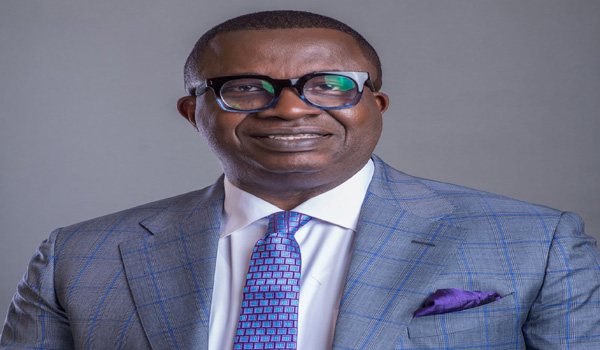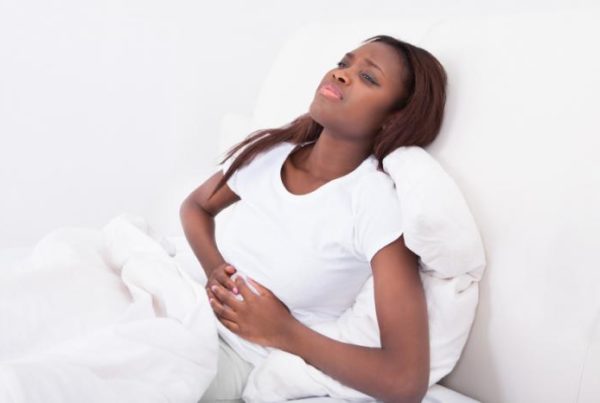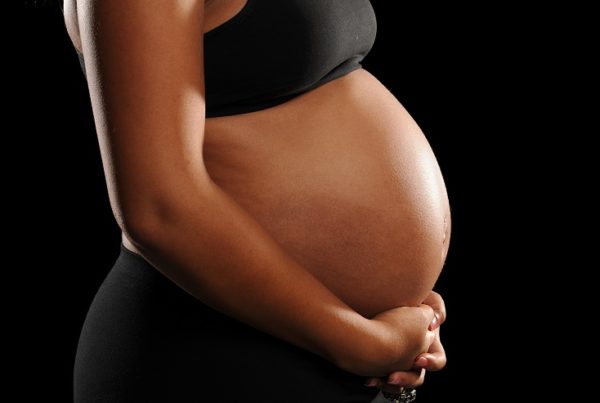Today March 16, the Lagos leg of the Worldwide EndoMarch is happening. It begins with a 5km walk from the City Mall in Lagos to Muri Okunlola Park on Victoria Island where the Endo Carnival will commence.
It is all about creating awareness, gathering support, raising funds for research, education and awards for endometriosis. It is part of activities of the Endometriosis Support Group Nigeria (ESGN), along with Nordica Fertility Centre, Lagos, and other partners to help end the silence around endometriosis. Through a hard-working team of staff and volunteers, ESGN endeavours to increase recognition of endometriosis, provide education programmes and help fund research into its cure and management.
Together we can break the silence and put an end to endometriosis.
Endometriosis is a painful debilitating chronic disease that affects women during their reproductive years.
It occurs when uterine-lining tissue is found growing outside of the uterus, typically resulting in immense pain during and between periods, heavy and long menstrual cycles, gastrointestinal upsets, and fatigue. There is currently no cure and symptoms can be difficult to manage.
One in 10 women battles endometriosis, a challenging and confusing disease with no known cure
The most common symptom is pain. Living with endometriosis is a life of pain. Pain before, during or after the monthly period. Pain with nausea, fatigue, anxiety and depression. It can also cause infertility.
Everyone is bound to know someone with this disorder who is struggling in silence. Inheritance plays a part in its development and much more research is needed.
A woman’s endometriosis journey usually begins with her first period. She’s always in pain and feeling sick. Visits to doctors for tests and scans don’t help.
After years of suffering, she finally sees one gynecologist that is curious enough to recommend a laparoscopy.
She is then diagnosed with Stage Four endometriosis, the worst a woman can have. It is growing on her uterus, bowel, ovaries, urethra and it even suffocated her appendix.
Her uterus is like a badly bruised apple that will never heal and might eventually need to have a hysterectomy.
She loves to start a family with her husband but endometriosis means it’s not an easy process.
Many women can’t work or have lost their jobs; some are unable to afford the high ongoing medical costs and as with any chronic health condition, most experience anxiety or depression. Awareness means shall be meaning others are diagnosed earlier and with information at hand.
Endometriosis is difficult to diagnose, which surveys proved true as 72 percent of women with endometriosis had to visit two or more doctors before being diagnosed.
Averagely, it takes around10 years for women to receive a proper diagnosis of endometriosis because of the lack of knowledge among the general population and medical world. Knowing the symptoms of endometriosis could help women determine if they are suffering from the disease; however, many women are unaware of all the key symptoms.
In fact, one survey found that 42 percent of women weren’t aware that pain during sex could be a symptom of endometriosis. In addition, 20 percent of doctors reported that they do not ask their female patients if they experience this pain.
It may also be difficult to determine if a woman has endometriosis because laparoscopy is the only definitive way for it to be diagnosed. There is a lack of funding for endometriosis research, possibly due to the stigma surrounding women’s reproductive health. With improved research and understanding of the disease, women could have access to a wider range of treatment options to choose from, increasing their personal autonomy.
Although it can be challenging, revealing personal stories may help others recognize and understand the symptoms they are experiencing. This could also potentially decrease the amount of time it takes to diagnose endometriosis.
That is why many women including celebrities have come forward to discuss their experiences living with endometriosis. The more people talk about endometriosis, the more awareness is raised about this often-misunderstood disease.
When communicating about endometriosis, it is important that the message is understood. There is no other name for it, we only have to explain it to those who may not understand. As much as the need for local language may be necessary, the important thing is to communicate. Even women that are not educated enough to understand what endometriosis is can still be carried along. I can say to her: Madam that part of your body that’s shed every month, (the endometrium) is what we are talking about. If you have it in places other that your uterus, it is abnormal. That is the way it would make more sense to her and of course the pain that comes with the condition can be focused on as well.
If there is pain that is beyond ordinary, type of pain that when you are menstruating you cannot leave home for 2-3 days, it is abnormal.
Focusing on the symptoms helps. For instance, if every month you notice that you bleed from your navel, or there is bleeding from the rectum at a certain period of the month, then you can raise alarm.
All these can be interpreted in local language. It is this connection that ultimately matters. The bottom line is that as a woman you need to appreciate that you do not have to live with pain when having your periods.
The difficulty physicians’ face when attempting to diagnose endometriosis is two-fold: First, endometriosis is not usually covered at length in medical school, so doctors may not consider the condition when first examining a patient. Second, because endometriosis symptoms such as digestive problems, pelvic pain, and leg pain are shared with many other conditions, misdiagnosis is common.
Also, it is important that if you think you might have endometriosis, the only way to definitively know is through diagnostic laparoscopy — a minimally invasive procedure in which a doctor uses a thin telescope to look into your pelvic area and search for visible signs. Diagnosis is then confirmed by examining tissue samples to determine if the disease is present.
It’s well established that endometriosis is a major cause of infertility, and that up to half of women with it will have difficulty getting pregnant. The good news is that endometriosis is a highly treatable cause of infertility. This is part of the EndoMarch campaign.
Your voice matters. Every voice matters. It is still not so easy for every woman to talk openly about her period. Talking about menstruation is still taboo. It’s especially hard when you feel like your symptoms are extreme, and you’re worried others will judge you for complaining.
But this is precisely why it’s so important that open conversation is cultivated about endometriosis and its impact on women’s lives. When more people are aware of the disease and understand the reality, everyone can talk freely and the stigma won’t be so much
Saying you have painful periods wouldn’t be termed that you are weak or dramatic. It would mean being honest and responsible. The EndoMarch sensitizes you about the need to be proactive about your reproductive health.
The main message today and every day is that if you think you might have endometriosis, it’s important to know you’re not alone. There is a listening ear for you to talk about it.
Organizations like the ESGN are on ground and working hard to listen and support while educating everyone.
With endometriosis, getting help and support from others is important. It’s time to end the silence.





